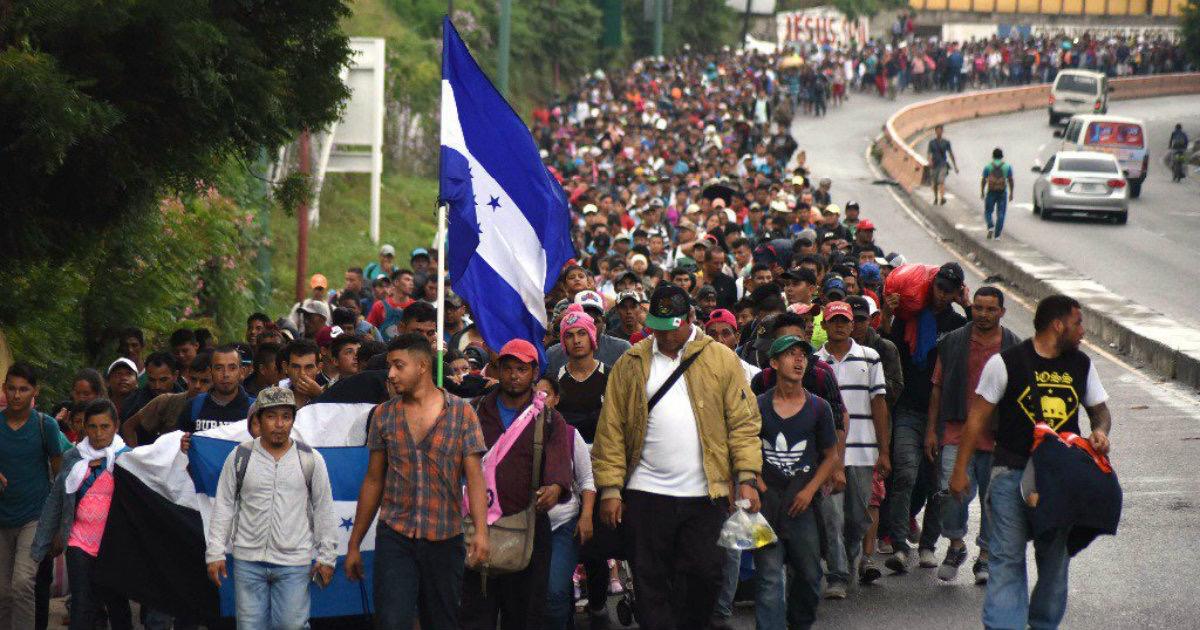A dramatic rise in migrants, the crisis in Haiti, the pandemic’s effect and democracy backsliding have united three countries in the Caribbean and Central America in the search for quick solutions.
An alliance among Panama, Costa Rica and the Dominican Republic to coordinate their foreign policy hopes to promote economic recovery, find multilateral solutions to the migration crisis and strengthen democratic institutions to counteract the decline of basic freedoms in the region, the Foreign Minister of Panama, Erika Mouynes, said in an interview with el Nuevo Herald and The Miami Herald.
The Alliance for Development in Democracy, an initiative that took off on the sidelines of the United Nations General Assembly last year, was created in response to “recent regional developments, some of which are very worrying concerning democracy,” Mouynes said. The participant countries shared common ground on several foreign policies issues, she added.
Behind the initiative is also the Dominican Republic’s interest in finding solutions to the growing instability in neighboring Haiti, from where thousands of migrants have left for the United States and South America.
On Wednesday, Human Rights Watch warned of an “alarming setback” in fundamental freedoms in Latin America in its latest report. The countries that make up the new Alliance are particularly concerned with events in neighboring nations. And the fact that it is only made up of three governments showcases the extent to which Central America and the Caribbean are in crisis.
The Human Rights Watch report highlights the instability in Haiti, where a crisis of governance fueled by gangs’ violence and the assassination of President Jovenel Moise have been compounded by the devastating effects of an earthquake and rampant poverty. In Central America, the report mentions the elections without democratic guarantees in Nicaragua as well as the migration spike after two years of the COVID-19 pandemic.
The Alliance has held several meetings to coordinate a response to the situation in Haiti due to its effect on the migration crisis.
The minister said that Panama had seen the number of irregular migrants arriving from Colombia en route to the United States jump from 8,000 in 2020 to more than 130,000 last year. Many come from Haiti, she added.
“The migration problem is not going to be solved by any single country,” she said. “You have to involve partners that have a marked interest such as Canada, the United States and Mexico,” and the Alliance serves to “bring them to the table.”
High-level representatives from 10 countries — including the United States, Canada, Mexico, Chile, Ecuador, Brazil, Colombia, Peru, Panama and Costa Rica — gathered in Panama to address the issue in August last year. The meeting resulted in an agreement to increase information exchange and judicial cooperation to fight human smuggling. Mouynes said a smuggling network had already been dismantled as a result.
The discussions also centered on the need to offer opportunities for immigrant integration and provide resources to meet the needs of migrants in transit. Many Haitians have tried their luck in countries like Chile, for example, from where they have had to emigrate again because of lack of jobs.
“We ask for coherence in these migration practices and policies so that if there is a state that decides to promote the reception of migrants, they must have adequate facilities to be able to serve them,” the minister said. “They have very tough stories. Sometimes, (the migrants) go through up to five countries, and Panama is the first country that gives them medical care, food, food with the requirements for children and nursing mothers, plus shelters. But this level of support and this humanitarian approach cannot be carried out by Panama alone.”
The nations that make up the Alliance also hope to join forces to boost economic recovery and promote their markets in Europe, the United States and Asia, Mouynes said at a virtual event organized by the Washington-based Wilson Center on Tuesday, also featuring the foreign ministers of Costa Rica and the Dominican Republic. Taken together, the three countries’ market volume makes them the region’s third-largest trading partner of the United States and the fifth of the European Union.
At the event, the foreign ministers stated that the Alliance does not intend to supplant the functions of institutions such as the Organization of American States, but to coordinate statements, initiatives and candidacies before multilateral organizations, for example.
President Joe Biden called the Alliance “inspiring” in his closing speech at the Summit for Democracy in December.
“It is important to show that when you maintain the rule of law and you have solid democratic institutions, countries advance,” Mouynes stressed. “I believe that this is a positive message that is necessary and is lacking in the region.” (The Miami Herald)
Original Source: AP



































